- Home
- Joel Goldman
No Way Out (2010) Page 3
No Way Out (2010) Read online
Page 3
“Why not me?”
She wiped her mouth and nodded. “I don’t know you well enough to say. You do that all the time?”
“Just enough to keep life interesting, especially when I get caught in the middle of a shoot-out. Who are they?” I asked, pointing at the floor.
“Frank and Marie Crenshaw.”
“Frank and Marie always get along that well?”
“Actually, they were real good together until the last year or so.”
“What happened?”
“The same thing that’s happened to a lot of people since the economy went south. Seems like everyone has either lost their job or their business or they go to sleep every night scared to death of getting out of bed in the morning because it might be their turn. I don’t think Frank has slept in a month.”
“What’s your relationship to them?”
She took a sip of her Seven Up, leaned back in her chair, and closed her eyes for a moment, opening them when she answered.
“We have a history.”
“What kind of history? Are you related to them?”
She sat up, studying me, her eyes narrow and cautious. “They’ve got a scrap business off of Independence Avenue in Sheffield. I keep their books.”
“So, you work for them.”
“Not like that. I’ve got my own business. Chase Bookkeeping. They’re one of my clients.”
“You don’t look the bookkeeper type.”
She smiled. “It’s really my mom’s business, but she had a stroke last year. I’d just gotten my accounting degree at Park University so I kind of took over. First thing I learned: when you’re the boss, no one can tell you what you’re supposed to look like.”
She fished in her purse for a business card and handed it to me.
“You also don’t look like the type who carries a gun and knows how to use it.”
“That was my Grandma Lilly’s rule. She said the women in our family had to know how to take care of ourselves.”
“Why?” I asked.
She gave me another smile, this one with her mouth closed. “You might say we’ve got a history too.”
“Grandma Lilly ever shoot anyone?”
“Not in a long time, but she says it’s never too late. She’s sixty-five and still goes to the shooting range.”
“I can’t wait to meet her. Where’s she live?”
“With me and my mother in Pendleton Heights.”
“Where’s that?”
She squinted, giving me a microscopic look as if I was from a foreign country. “It’s a neighborhood in the northeast part of town. West of Sheffield.”
I’d lived in Kansas City long enough to know the east side from the west, the Country Club Plaza from the mega malls and strip centers in Johnson County, and where the state line divided Missouri and Kansas. I knew that Northeast KC was bounded by The Paseo on the west, Interstate 435 on the east, Gladstone Boulevard to the north, and Truman Road to the south; that Independence Avenue ran east and west from downtown to the Interstate, bisecting Northeast into northern and southern hemispheres.
Though I didn’t know the names of its neighborhoods, I knew that Northeast had a history of mansions on Gladstone Boulevard, hookers on Independence Avenue, and gangs south of the Avenue. And I knew one other thing. It was where Peggy and Jimmy Martin and their two kids lived, a coincidence that shrunk my Sunday afternoon world to claustrophobic dimensions.
“It’s Sunday. What are you doing working?” I asked her.
“We had some things to go over. It was the only time we could meet.”
“What kind of things?”
She folded her arms across her chest. “What are you? A cop?”
“Retired. FBI.”
“If you’re retired, why are you asking me all these questions?”
“Old habits die hard. Frank killed Marie, and you shot Frank. Anybody would want to know why.”
“Like I said, I keep Frank’s books. His scrap business is underwater, too deep to keep the doors open. He’s known for a while, but he couldn’t bring himself to tell Marie. He asked me to do it. Frank said she loves LC’s Bar-B-Q. He thought it would go down better if we did it here.”
She finished her Seven Up and turned in her chair to take another look at Frank. His color had gone from sheet white to gray, his breathing from shallow to feathery.
“You sure he’s not going to die?” she asked Lucy.
Lucy didn’t answer, craning her head, searching out the windows for an ambulance.
“The police will be here in a minute,” I said. “They’ll read you your rights. Bottom line, you don’t have to say a word until you’ve talked to a lawyer.”
“You saw what happened. Frank was going to kill the rest of us. He took a shot at me so I shot him back. It’s all pretty simple.”
I shook my head. “The police will ask you a lot of questions about who you are and what you were doing here, where you’ve been and where you were going. They’ll run all three of you through the computer to check for prior convictions and outstanding arrest warrants. They’ll want to see the permit for your gun if you have one, and they’ll want to know where you got it if you don’t. They’ll search your purse and Marie’s and Frank’s wallet and the car you were driving. They’ll want to know everything the three of you talked about since you got up this morning. And down the road, Frank’s lawyer will tell him that keeping him off death row may depend on how many people he can offer up in return for his life. So, trust me. Simple is the last thing this is going to be.”
A shiver ran through her, remnants of adrenaline or newborn fear. I couldn’t tell which it was, but the cloud that came over her eyes as she took another look at Frank said it was more likely fear. She hugged herself, her face rounding back into a normal hue.
“If you used to be an FBI agent, how come you’re trying to help me?”
I could have told her, but this wasn’t the time or place for my history. She smiled, the expression lighting her face and brightening her eyes, making her young again.
“I know why,” she said. “It’s because I saved your life. You and your wife.”
“She’s not my wife.”
She glanced at my left hand. “No ring. Girlfriend?”
“Friend.”
Three patrol cars skidded to a stop in the parking lot, a pair of ambulances trailing them, the restaurant filling with people in uniforms, ending our conversation. A paramedic took Lucy’s place with Frank. I handed one of the cops the bag with the guns and gave them a quick and dirty rundown, telling them who everyone was. They put each of us at separate tables, two of them keeping an eye on us while the other two secured the perimeter of the parking lot with yellow crime-scene tape.
Quincy Carter arrived in time to hold the door for the paramedics wheeling in gurneys for Frank and Marie. Carter was a homicide detective, tall and broad-shouldered; his black head shaved and glistening from the rain. He was a solid cop who knew the book well enough not to go by it all the time. One thing he didn’t like was people meddling in his cases, especially people that didn’t go by any book at all. People like Lucy and me.
Chapter Six
I had lived by the book most of my life, in the FBI and in my marriage, and had been kicked out of both. The FBI let me go because of my movement disorder. My ex-wife, Joy, let me go because we had caused each other too much pain to stay together. She’d had the insight to understand that at a time when I was still making excuses.
The FBI didn’t look back, but Joy and I did. After we divorced, we found a slender thread to keep us connected. Our dogs, cockapoos named Roxy and Ruby, needed playmates and a place to stay if one of us was out of town. Taking care of them gave us time and space to reflect on our past without walking barefoot on the broken glass left by the deaths of our son Kevin and daughter Wendy, Joy’s alcoholism, and my inability to come to grips with any of that.
When she was diagnosed with breast cancer a little over a year ago, I ask
ed her to move in with me. She said yes, and we learned to take care of each other all over again. Her disease and my disorder became bridges instead of roadblocks.
Chemo, radiation, and surgery had subdued but not defeated her cancer. The disease had metastasized to her lungs. She was sober and alive. Neither condition, she reminded me, were guaranteed more than one a day at a time. Her oncologist was more precise. She’d die sober sometime in the next one to two years, later if she were lucky, sooner if she wasn’t.
There was no getting used to her dying, no clever phrases to buck each other up. We climbed up and down the seven stages of grief, landing in a different place each day. So we fell back on the only one that we could make work, taking it one day at a time. We threw out the calendar our insurance agent sent us as a Christmas gift and did as much as we could as often as we could, lucky that Joy had more good days than bad.
My movement disorder was manageable as long as I said no to Lucy and Simon more often than I said yes. Joy understood how hard it was for me to tell them no, holding me up when I stumbled.
We skirted whether we’d fallen in love again, uncertain what that meant at this point in our lives, at ease living in the same house, our children’s ghosts forever hovering in the near distance. It was an odd, ill-defined, and still-evolving relationship that worked because we didn’t expect more from it. Ours was a hard-earned wisdom born from losses we thought we couldn’t survive but did. We understood that second chances were precious and rare, even more when they came with a premature expiration date.
Through it all, I had learned to leave the book behind, the list of expectations, requirements, and metrics that forced square people into round holes. It helped that I wasn’t accountable to anyone and that no one was filing quarterly reports assessing my fitness and performance and that the government sent me a disability check every month that was enough to make my mortgage payment, buy twenty-dollar Dockers at Costco, drive a six-year old Camry, and let the phone ring without answering it. I was fifty-three and aboveground. Life was good.
The one thing I couldn’t let go of, and didn’t try to, was the debt I owed to my kids. We’d lost Kevin to a child predator when he was eight and Wendy to a drug overdose when she was twenty-five. Grief and guilt, I’d learned, simmer forever. They can eat you alive or boot you in the ass, reminding you not to let it happen to someone else’s kid. So, I signed on to help Lucy find Evan and Cara Martin, and I prepped Roni Chase for what lay ahead for her, and I lied to Quincy Carter when he asked me if he was going to have to put up with me again.
“I’m just an accidental witness. That’s it,” I told him.
“For today, maybe,” Carter said. “But I know you. It’s tomorrow I’m talking about. Tell me what went down here.”
He’d already talked to Roni, Lucy, and LC. I talked, and he nodded, asking occasional questions.
“Matches what the others told me,” Carter said when I finished.
A uniformed cop approached and waited for Carter to notice him.
“We’ve got nothing on the female shooter,” the cop said when Carter finally nodded at him and cupped his elbow, turning both their backs to me. I stood, stretched, and eavesdropped.
“What about the other two?” Carter asked.
“Frank Crenshaw, age forty-one. Did six months for stealing a car when he was nineteen, clean ever since, but he’s a convicted felon. Can’t legally possess a gun. The victim is his wife, Marie, age thirty-nine. We’ve got nothing on her.”
“Any history of domestic violence complaints?”
“No, sir. If they were having problems, she didn’t call 911.”
“What were they talking about?” I asked.
Carter pivoted and cocked his head at me. “Who?”
“Frank, Marie, and Roni.”
He raised his eyebrows. “Why do you care?”
“Lucy and I were having a nice lunch. Then they started shouting and shooting at one another. Ruined our meal. I’d like to know why.”
Carter shook his head. “Un-uh. No way, no sir. Not today. You told me you were just an accidental witness. That’s it. You’ve got no dogs in this fight, and I’m not going to give you one. You and Lucy get your butts downtown and write out your statements, then go home.”
“What about Roni’s gun? Did she have a permit?”
Carter sucked in a breath, glared at me, and turned away.
“C’mon, Carter. That’s not classified information. Don’t make me work for it.”
He stopped, took another deep breath, and did a slow half spin.
“Do me a favor,” he said. “Don’t work for any of it.”
“You’ve got three eyewitnesses that say it was self-defense. The media will make her an overnight sensation. The prosecutor isn’t going to charge her. The chief will probably give her a medal. So throw me a bone.”
He held up his index finger. “One bone. She had a permit.”
“What about Frank?”
He wagged his finger at me. “Are you blind and deaf? One bone. Go downtown and then go home.”
Another detective, a young guy with short, mousse-spiked hair and teeth bleached iridescent white, cut through the crowd, holding up his phone and pointing to the e-mail on his tiny screen.
“We got a match on the serial number on Frank Crenshaw’s gun,” he said to Carter. “It was one of the guns stolen last month from that dealer who lived at Lake Perry.”
Carter closed his eyes and shook his head. “Yardley,” he said to the detective, “go away so I don’t shoot you.”
“What’d I do?” Yardley asked.
I stood and clapped Yardley on the shoulder. “You threw me a bone, son. And that’s Carter’s job, not yours, and he still owes me another one.”
I left them and found Lucy outside. The rain had eased to a thin mist. We watched as Roni was ushered into the backseat of a squad car. She gave me a thumb’s-up, the gesture more important to me than her optimism because it meant that she wasn’t handcuffed.
“You know anything about a gun dealer up at Lake Perry who was robbed last month?” I asked Lucy.
She thought for a minute, scrunching her brow, the brown curly hair that billowed out from her face hanging damp against her cheeks, topping off a lean and lanky frame. She was another testament to second chances, having served a sentence for felony theft after pocketing loose diamonds she found at a murder scene. She lost her sheriff’s deputy badge, but built a new life when she got out.
“Yeah, don’t you read the papers?”
“Sports and comics. What happened?”
“The guy was driving home from a gun show in Topeka. There was something weird about the way it happened, out in the woods or something like that. He hit a deer and had a heart attack. I don’t remember the details. Why?”
“Frank shot Marie with one of the handguns.”
“No kidding! What’s Frank do for a living?”
“Roni says he’s in the scrap business.”
“Much scrap value in stolen guns?”
“Depends on whether you want to melt them down or sell them,” I said.
“What’s Roni’s connection?”
“She kept his books.”
“You think she’s out of the woods on this?”
“Not so much. Guess where they live?”
She looked at me, blinking the mist from her eyes. “Don’t make me beg.”
“Northeast.”
She hugged herself. “Small worlds are too crowded. I hate them.”
Chapter Seven
I don’t drive much. Thirty minutes one-way is as far and as long as I go if I can help it. More than that and my head gets fuzzy, which means the shakes can’t be far behind, especially on the return trip. Jackknifing with spasms while in the driver’s seat is not something I’m anxious to do. So I take the bus, which teaches you patience and the importance of a warm coat during the winter and a daily shower during the summer.
Joy and I live in a midtown ne
ighborhood called Brookside where the trees tower over the rooftops and the houses are modest and close, like the people who live in them. Lucy inherited it from her father and sold it to me when she moved in with Simon. The house is a couple of blocks from Sixty-third and Brookside Boulevard, an intersection where I can catch a bus headed in any direction.
Monday was a bus day. I got off near Thirty-eighth and Broadway and walked to Simon’s office, which was on the second floor of a two-story, block-long building. The first floor was anchored on the north by a bar called Blues on Broadway, the rest of the block filled with a dry cleaner, tattoo parlor, health food emporium, and used bookstore. Wilson Bluestone, aka Blues, owned the bar and the building.
Simon’s office was on the south end of the second floor, five hundred square feet filled with his computers and flat screens, and Lucy’s file cabinets. He was digital, handling his cases electronically, and she was analog, preferring hard copy.
A sometime lawyer named Lou Mason had the office on the north end. He was as likely to be tending bar at Blues on Broadway as standing before the bar in court, depending on the status of his license and his latest run-in with judges that didn’t admire his hit-and-run style.
The middle space was for lease. The last tenant had been Decision Making Consultants, run by Kate Scranton. Kate was a psychologist and jury consultant who could read lies in the involuntary facial movements none of us can suppress. We met while Joy and I were still married, Joy accusing me of having an affair with her. Though I wasn’t yet sleeping with Kate, I gave her my heart and left Joy with my pain. After the divorce, I saw my future with Kate until her ex-husband moved to San Diego, taking their troubled teenaged son, Brian, with him. Kate couldn’t bear being separated from her son and followed them to California. She asked me to come with her, telling me there was nothing to keep me in Kansas City.
That’s when Joy’s cancer was diagnosed and I realized that Kate was wrong. When I asked Joy to move in with me until she was better, I asked Kate to understand. Kate tried, but couldn’t. I postponed my trip to San Diego. Kate returned my phone calls with e-mails and answered my e-mails with silence.

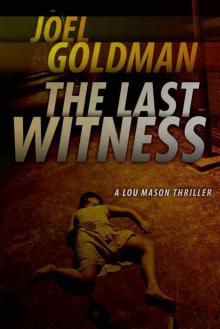 The last witness lm-2
The last witness lm-2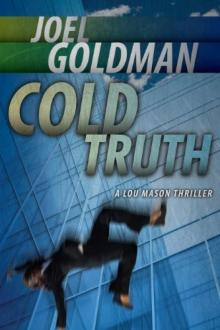 Cold Truth
Cold Truth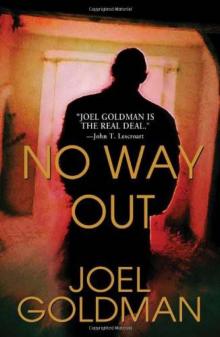 No Way Out (2010)
No Way Out (2010)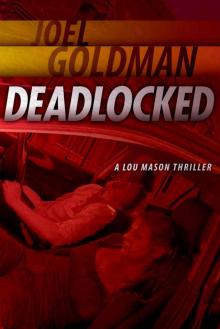 Deadlocked (Lou Mason Thrillers)
Deadlocked (Lou Mason Thrillers)![[Lou Mason 01.0] Motion to Kill Read online](http://i1.bookreadfree.com/i1/03/24/lou_mason_01_0_motion_to_kill_preview.jpg) [Lou Mason 01.0] Motion to Kill
[Lou Mason 01.0] Motion to Kill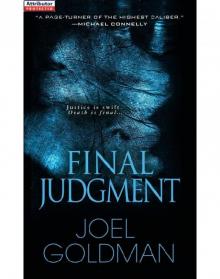 Final Judgment
Final Judgment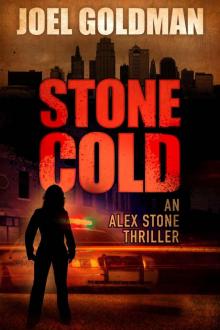 Stone Cold
Stone Cold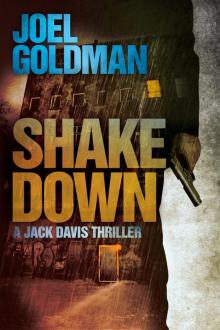 Shakedown
Shakedown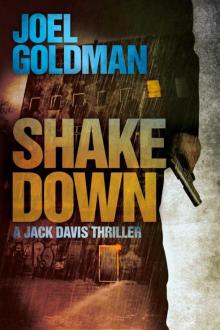 Shakedown jd-1
Shakedown jd-1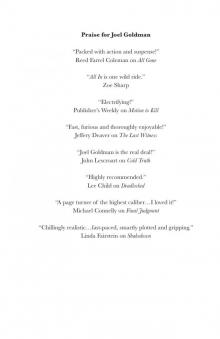 All Gone
All Gone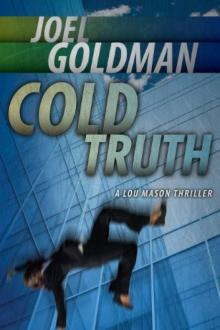 Cold truth lm-3
Cold truth lm-3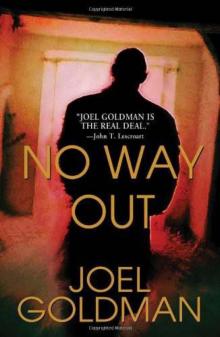 No way out jd-2
No way out jd-2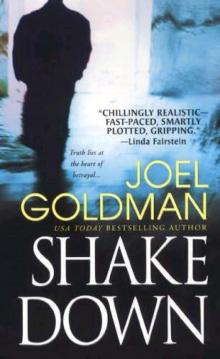 Jack Davis Mystery - 01 - Shakedown
Jack Davis Mystery - 01 - Shakedown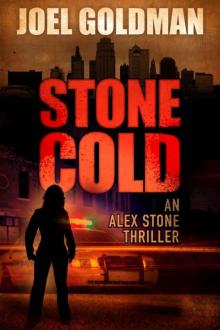 Stone Cold as-1
Stone Cold as-1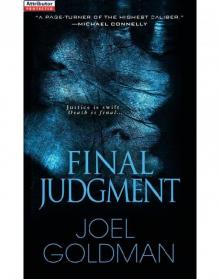 Final judgment lm-5
Final judgment lm-5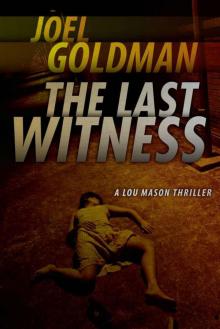 Lou Mason Mystery - 02 - The Last Witness
Lou Mason Mystery - 02 - The Last Witness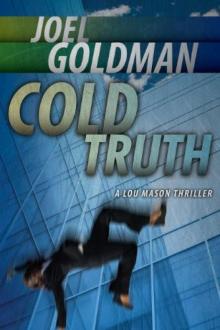 Lou Mason Mystery 03-Cold Truth
Lou Mason Mystery 03-Cold Truth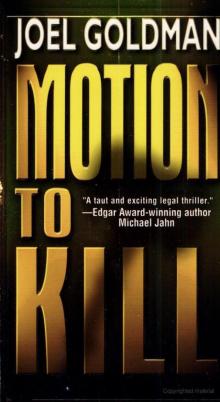 Motion to Kill
Motion to Kill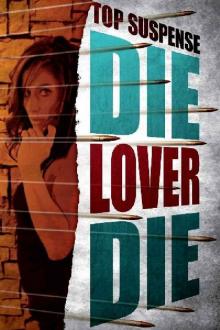 Die, Lover, Die!
Die, Lover, Die!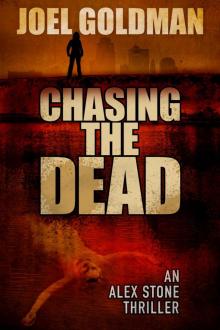 Chasing The Dead (An Alex Stone Thriller)
Chasing The Dead (An Alex Stone Thriller)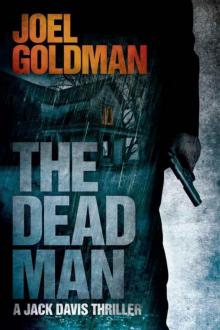 The Dead Man
The Dead Man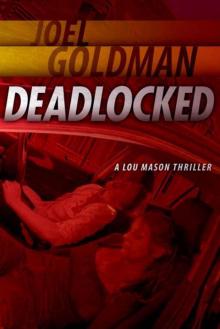 Deadlocked lm-4
Deadlocked lm-4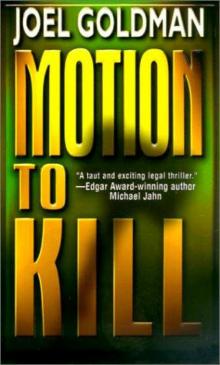 Lou Mason Mystery - 01 - Motion to Kill
Lou Mason Mystery - 01 - Motion to Kill Die, lover, die
Die, lover, die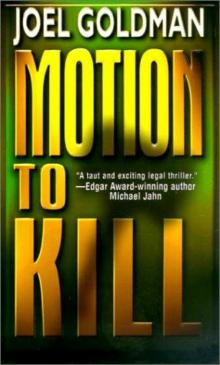 Motion to Kill lm-1
Motion to Kill lm-1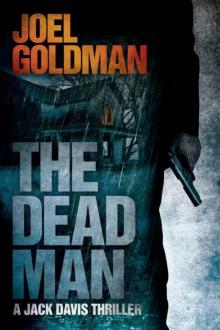 The Dead Man jd-3
The Dead Man jd-3